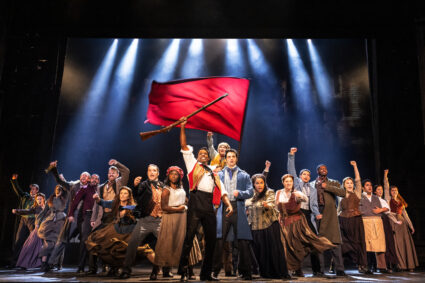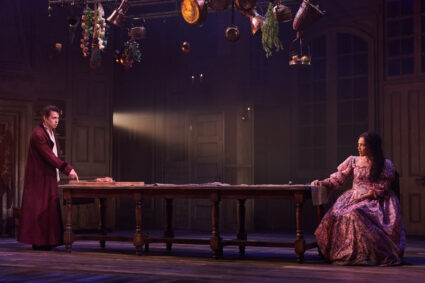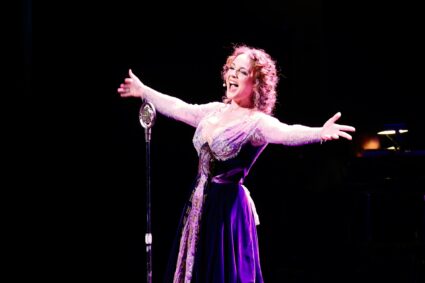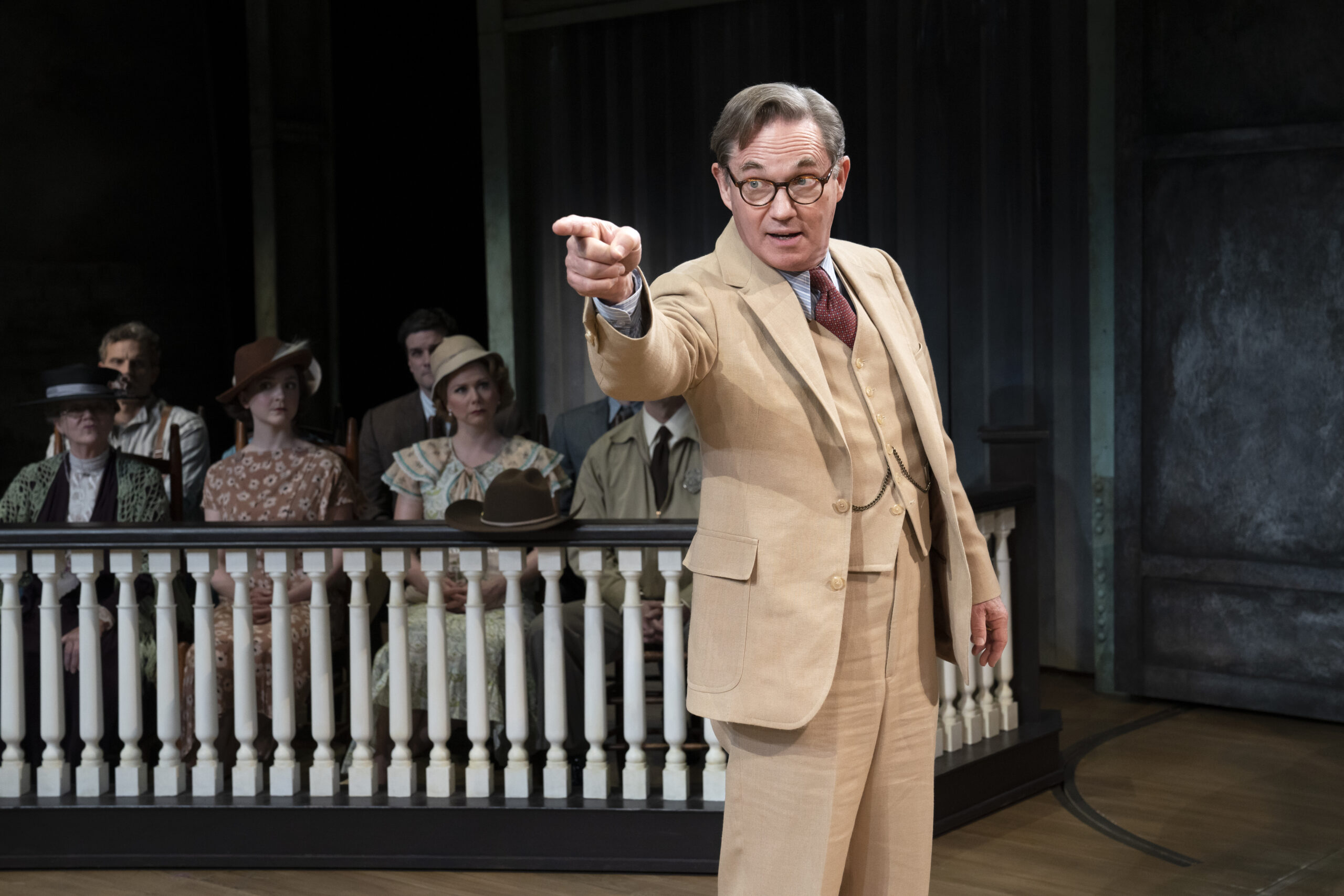
Before the Kennedy Center’s staged version of “To Kill a Mockingbird” begins, people all over the theater murmur to their partners, children, or friends about how important this novel was to them in their formative years. (This author certainly counts herself in those numbers.) The rapt attention of the audience almost creates a seal around the Eisenhower Theater (broken only by the one jerk repeatedly checking his phone, who obviously hasn’t gotten the memo).
For anyone who was never a high school English student in the United States, To Kill a Mockingbird is a classic novel by Harper Lee (stage version by Aaron Sorkin) that explores issues of race and justice in 1934 Alabama. The story is told through the eyes of Scout Finch, a precocious girl whose father, Atticus Finch, defends Tom Robinson, a black man falsely accused of rape of a white woman.
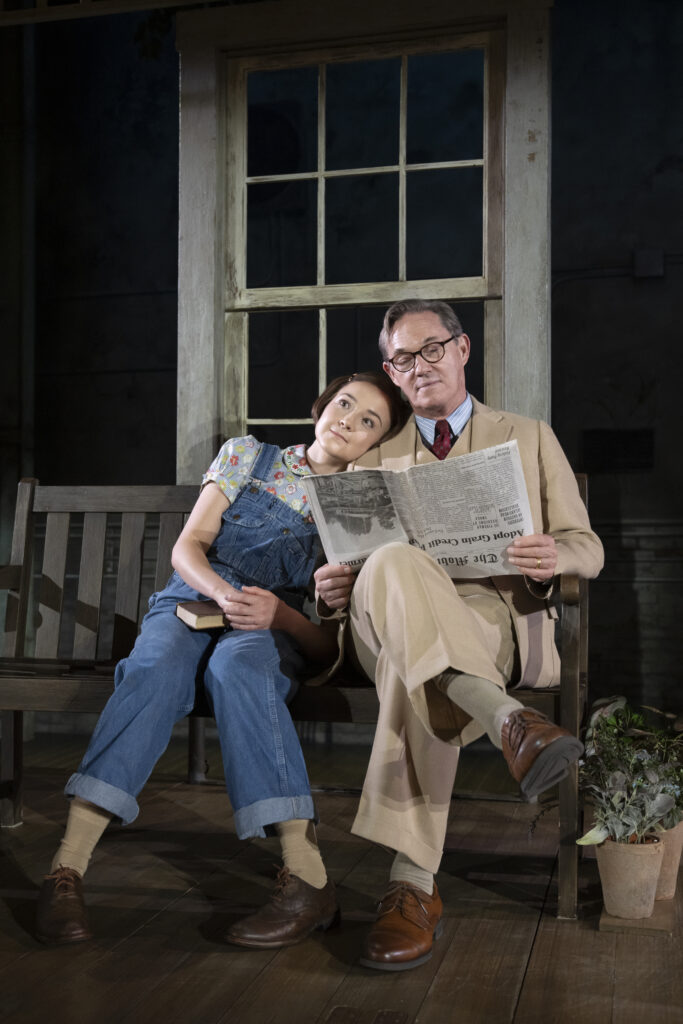
Despite the serious subject matter and a plethora of tense and racially charged moments, this show is also full of warmth and humor. Scout (Maeve Moynihan) is playful and plucky—which is as endearing as it is worrisome; Scout’s innate curiosity gets her both in and out of some sticky situations, including one involving white-hooded men bent on doing violence. Her brother, Jem (Justin Mark), and their friend, Dill Harris (Steven Lee Johnson), make up the rest of Scout’s imaginative triumvirate—with Johnson, in particular, dropping some particularly poignant truths with an achingly innocent sincerity.
The heart and soul of this show, as in the novel, is Atticus Finch (Richard Thomas). The father and lawyer courageously stands up to his bigoted neighbors and fellow citizens as he defends an innocent man and inspires empathy with his constant refrain that “You never really understand a person . . . until you climb into his skin and walk around in it.” While Atticus can come across as unrealistically idealistic—indeed, his longtime domestic servant, Calpurnia, (the superb Jacqueline Williams) points this out to him on more than one occasion—his inherent decency is hard to argue with. Calpurnia, incidentally, is the only one to push back in any meaningful way on Atticus’ core notion that everyone has goodness in them. Thomas plays Atticus in a way some might call understated—but which fans of the novel or production will recognize as the character’s real superpower. Atticus Finch does not need to yell to be heard above the fray—except, of course, in a few courtroom moments where that is exactly what is called for. (Note that watching Thomas’ Atticus outmaneuver racists and teach tolerance might feel particularly cathartic for anyone who regrets reading Harper Lee’s Go Set a Watchman—the Harper Lee’s manuscript released posthumously and arguably without consent of the author—which presents a more complicated and far less magnanimous version of Atticus Finch.)
The minimalist sets and staging in this show feel appropriate for a courtroom drama but do occasionally leave something to be desired. In particular, there are lengthy periods in which the show’s main characters largely have their backs to the audience, or else their faces largely obscured. Nevertheless, the show’s stellar cast and compelling storyline make for a meaningful and memorable night of theater that should not be missed.
To Kill a Mockingbird is playing at the Kennedy Center’s Eisenhower Theater through August 27th.
FINAL GRADE: A
